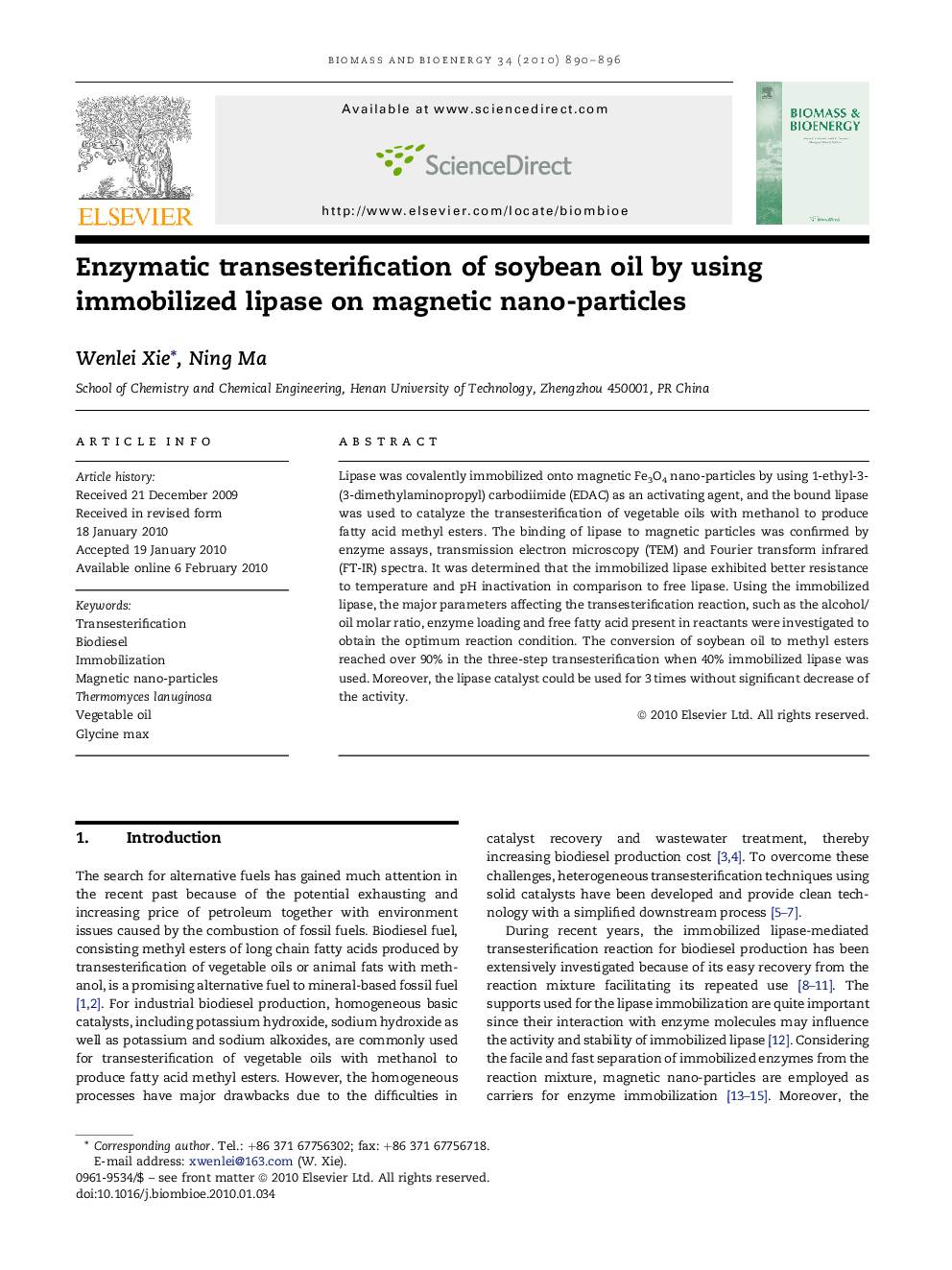| Article ID | Journal | Published Year | Pages | File Type |
|---|---|---|---|---|
| 677823 | Biomass and Bioenergy | 2010 | 7 Pages |
Lipase was covalently immobilized onto magnetic Fe3O4 nano-particles by using 1-ethyl-3-(3-dimethylaminopropyl) carbodiimide (EDAC) as an activating agent, and the bound lipase was used to catalyze the transesterification of vegetable oils with methanol to produce fatty acid methyl esters. The binding of lipase to magnetic particles was confirmed by enzyme assays, transmission electron microscopy (TEM) and Fourier transform infrared (FT-IR) spectra. It was determined that the immobilized lipase exhibited better resistance to temperature and pH inactivation in comparison to free lipase. Using the immobilized lipase, the major parameters affecting the transesterification reaction, such as the alcohol/oil molar ratio, enzyme loading and free fatty acid present in reactants were investigated to obtain the optimum reaction condition. The conversion of soybean oil to methyl esters reached over 90% in the three-step transesterification when 40% immobilized lipase was used. Moreover, the lipase catalyst could be used for 3 times without significant decrease of the activity.
